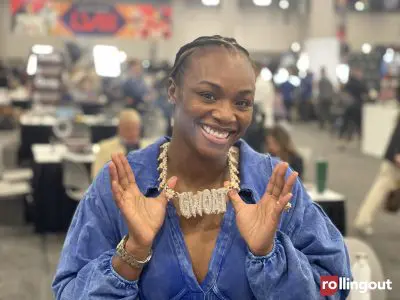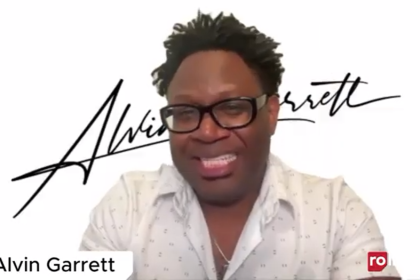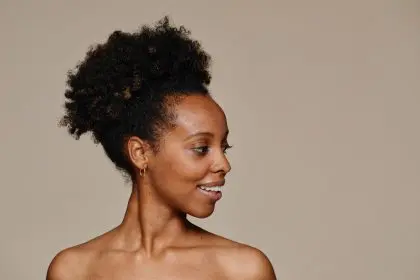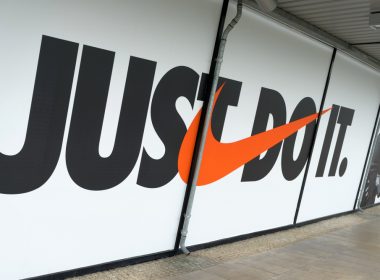 What inspires you to show up at work every day?
What inspires you to show up at work every day?
My work ethic is a result of watching my mom work three jobs for over 35 years all while managing mental illness and rearing two black sons. It’s both a touchstone and motivating. A touchstone because I am working two jobs – conducting policy analysis and lecturing. It is motivating because the experience, from a social justice perspective, is the foundation of my work in public policy, which examines how we create innovative and equitable outcomes for working and non-working people. In this informational economy, most working Americans’ wages have been bid down by globalization thus leaving them working harder while earning less. Additionally, I delve into the concept of Digital Taylorism, where the labor force is relegated to routines and standardization to maximize profits.
How did you determine your career path?
I chose policy analysis while it was choosing me. As a beneficiary, my life story is a series of positive policies: Head Start, Aid to Families with Dependent Children (AFDC), public housing, International Baccalaureate (IB) curriculum, JROTC and ROTC, the U.S. Army, and the Federal Student Loan Programs. While choosing my career path, I had the privilege to reflect on skills I wanted to develop as well as what talents to leverage to leave the world a little better than I found it.
What other industries connect to your career choice?
Broadband enabled technologies and the diffusion of digital platforms most relevant to large scale economic development including telecommunications firms: AT&T, Verizon and Sprint. But also, digital platforms such as Google, Apple, Samsung, Toshiba, Sony and even airlines, automobile manufactures … information communications technologies regulated and unregulated by the FCC, HUD in economic development initiatives, affordable and public housing units and HHS with telemedicine and healthcare markets and other relevant federal, state and local investments.
Describe the skill sets that are essential to future business leaders and innovators.
Leaders of all stripes in the business, non-profit and public sectors must command both the arts and sciences. In science, future business leaders must possess technical skills to produce double-bottom lines, defying Pareto optimality, because exchanges in the market leave both parties better off as well as meeting global sustainable and renewable resource standards. Equally important is the arts … and by that I mean the vision to look into an unpredictable, complex future to produce a beautiful reality not only for their shareholders, clients and employees but for their competitors as well. It’s what leadership and innovation demand.
Define innovative methods you apply to your business and life.
In policy analysis, I have the luxury to choose tools for evaluation and assessment that reflect my worldview. Oftentimes, I am able to consider the economic impact. I choose an equity framework that considers distribution of costs and benefits. Who pays? Who owns the rent? With this on the table, I’m able to frame conversations and set agendas to prioritize distribution and return on public investment. Simply stated, public benefits for public investment.
How do you set goals and evaluate your success?
Interestingly, I only think about my success when other people ask me about it. I think for the non-conformist me, I judge my success by how many people I can help, assist, advise, stand in the gap with and for. For example, a few years ago I reached out to institutions that helped me, namely The National Academies and the Berkman Center for Information and Technology. I very simply shared how those organizations helped me create options, and that I needed to be a conduit for a multiplier effect. Meaning, I needed to be a resource to help shepherd other people of color into those networks. It has proved to be very rewarding – and that’s my definition of success.
Who do you consider peers in your field? Who is setting a great example of best practices?
I don’t know if I see anyone as a peer. I certainly have allies across fields. There are so many, but if you’re asking me to name drop … Malkia Cyril, Betty Yu and the Center for Media Justice and affiliated allies (I would name every name here, if they gave me space). Their work is amazing! Their prison phone rates campaign will be studied by community organizers and policy scholars for years to come. Andre Banks at ALL OUT is doing amazing work in global digital organizing and social justice issues for LGBT communities the world over. Rashad and James at Color of Change is leading a awesome team in addressing, most effectively, racial justice issues with technologies. My inspiration outside my field comes from Ta-Nehisi Coates — a genius and inspiration for how to bring the full expression of a life to the printed word. I guess finally, I am awed by Tarell McCraney’s epic talent, rightfully, just earning the MacArthur Fellowship, genius grant. His works, In The Red And Brown Water and the The Brother Size were, by my estimation, lyrical contributions to social justice, public policy and human relations.
How do you stay abreast of changes in your field?
It’s very hard to do but I am tethered to my technologies and embedded in communities of difference. It’s at this intersection that I don’t allow myself to become a technophile and see the culture of technology that is imbued with class, gender and racial biases. But also, working in communities of difference, I am privy to cultural understandings for what technology might and can do to improve the daily lives people, who may have never been a part of the Beta-testing population.
Name your favorite role models for success in two industries.
I think I did this already … but you know I am one of the luckiest people alive. First, I would say Randal Pinkett, CEO of BCT Partners, is certainly a role model, though he may not know it. I joined Randy and the BCT crew to work hard to establish a business with integrity and meaning all while driving a bottom line. I like to say at BCT, I learned how to do well by doing good. Look at BCT today, all those guys are amazing (Randal, Dallas, Shawn, Lawrence, Jeffrey). Second, I would have to say is my best friend, Dewain Johnson (no, not The Rock). D Johnson has worked hard, even when it hasn’t paid well. He is a postal mail carrier who sincerely cares about his work, and even greater – often to my cynical reply – cares about the U.S. Postal Service for what it means to the people who receive their public benefits in the mail or even the responses people get to long-awaited greeting cards and, yes, people really do still send those with postage stamps.
Names three books that changed how you saw life that you would recommend to others.
Just three, really!?
Everything James Baldwin, but if I had to choose it would it would be Another Country. It provided a hard won clarity about the struggle of loving and self-acceptance. Really, the only two wars worth waging.
Edward P. Jones’ The Known World for how it crafted so well the inhumanity of slavery and the savagery of owning human beings into a pedestrian American pastime. Genius!
Chimamanda Adichie’s Half of a Yellow Sun affected me greatly, because I thought I was a reader, then I realized how limited I was. The profound loss and unresolved anguish of the Biafra War narrative left me feeling small in the world where I may have felt self-important for being a reader.
I will cheat here. Alice Walkers’ The Color Purple and The Same River Twice for how defiantly a feminist and deft writer she was, but also how she was able to revisit the work later, fully experiencing all the disappointments of creation and then rebirth with Purple, even in the face of all the vitriol and hatred she received for brilliant storytelling.
Toni Morrison’s A Mercy, one, because it was one of the hardest reads but beautifully rewarding books. A mother’s love when loving was dangerous and mothering impossible. She made me wait till the end but I erupted with emotion.
bell hooks’ Killing Rage and Ain’t I a Woman for giving voice to what it meant to grow up in the occupied south of United States and wrestle with a certain level of powerlessness rooted based on race caste system even in the face of the mixed messages about maleness, patriarchy and power.
Explain why lifelong learning is important to you.
Because I am human, with all the limitations and beautiful possibilities to be better. Learning certainly doesn’t have to be formal nor institutional. If anything, the scholarly literature tells us that we should honor multiple intelligences. But, for better reasons, there is so much to learn from other people and cultures – much different than my own. Life is a journey worth taking. I hope you weren’t expecting me to tap my inner economists for some labor supply theory.
Describe the voice of success that you hear in your head.
Funny, cause it most sounds like “Antwuan, align yourself with the power that is working in you.” So, for me the truth of who I am is all that is required for me to be successful. Now, this doesn’t mean I don’t have work to do, nor does it mean that I am perfect or will always do the right thing. I think it means that if I listen, pay with attention, then I and the universe within me – star power – can handle all that life brings my way.
Community success based on what you do in the community means what to you?
When I have had the occasion to teach courses on social organizing, I advance the perspective that “Community is a strategy.” So community success comes when residents’ ideas are activated to form solutions, bring about justice and speak truth to and with power.
What role does technology play in your daily life?
Technology is how I stay connected to my people and my tribe. Having just relocated to Denver, my people and tribe are all over the place. So I’m often, texting, tweeting, facebooking and instagraming to maintain the sense of closeness. I am working harder now to bridge the distance while creating a meaningful experience to bring friends closer to my life. I’ve invited friends to come to out and visit.
What software and technology tools have made the biggest difference in your life?
The VOIP technology has done wonders for my ability to stay connected to my friends all over the world. Special shout-out to friends in Cairo and Tunisia as well as my Army peeps deployed to the corners of the world to protect emerging and established global markets. I would love to do more outreach work with the FCC on how we might bring these technologies more fully into the marketplace with pricing and packaging that allow consumers more options and power to determine offerings.
How do music and cultural events define your self-identity?
I think they are both very important. Music and cultural events help to define and expand my community. So often, I live my life to a soundtrack which most often includes artists from Lalah Hathaway to Jamiroquai (“Space Cowboy”). Again, we know there is a science supporting music has therapeutic properties. But, also “I’m a sucka for a baseline” so I’m often listening to R&B, hip-hop The Roots, Common, D’Angelo and loving the latest Gary Clark Jr. but I love acoustic guitar so Bonnie Raitt. Cultural events are huge. I am rummaging through the Denver arts scene – modern, contemporary and street scenes. But I’m plotting on the Studio Museum in Harlem’s opening of Sun Ra inspired-collection on November 14. Also, I may get to Atlanta to catch Choir Boy and certainly in December will be in Miami, my hometown for Art Basel – if only to see local artists and friends from Cannonball and Art Loft. I hear also there is a new mural at Broward Community College who smartly hired Lamar Ariel away from Columbia earlier this year.
Define your personal culture.
It’s savory-sweet. I like complex, sometimes competing, textures and patterns, elegantly if irrelevantly appointed.
Describe your favorite vacation spot.
My favorite vacation spot is probably the closet body of water with an adjacent tennis court. It’s actually all the respite I need.
If you could change one thing about the world, what would you change?
If I could change one thing about the world..just one? I guess, I would establish a global set of social rights where everyone had the right, not just access, to non-GMO, organic food, healthcare, clean water, affordable, sustainable housing to call home, and the most important resource of all-love.
If you could change one thing about yourself, what would you change?
That I didn’t want so much to please and disappoint … I am working to accept myself, as is, flawed and all perfect, not yet realized.
Please give details about your education/certification/
BA in communications from Hampton University
MPA in policy analysis from Indiana School of Environmental and Public Policy
Graduate Certification in Survey Methodology from University of Michigan
ABD in Management and Urban Policy from Milano, The New School
Graduate Science and Technology Policy Fellow, The National Academies
Research Assistant (Berktern), Berkman Center for Information & Society at Harvard University











